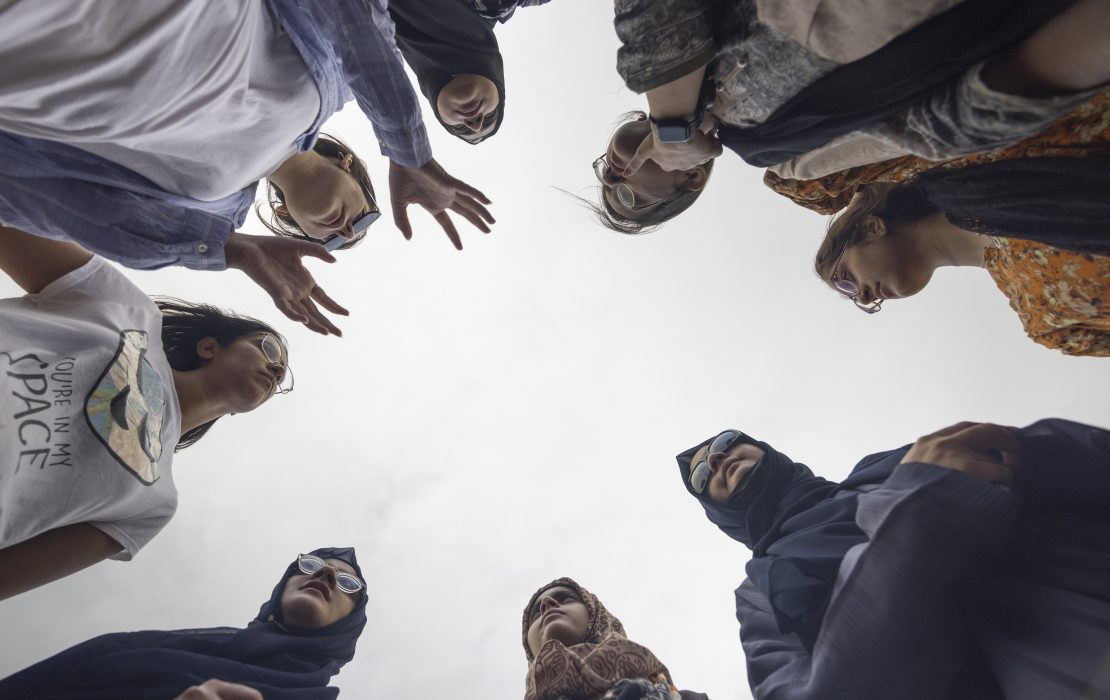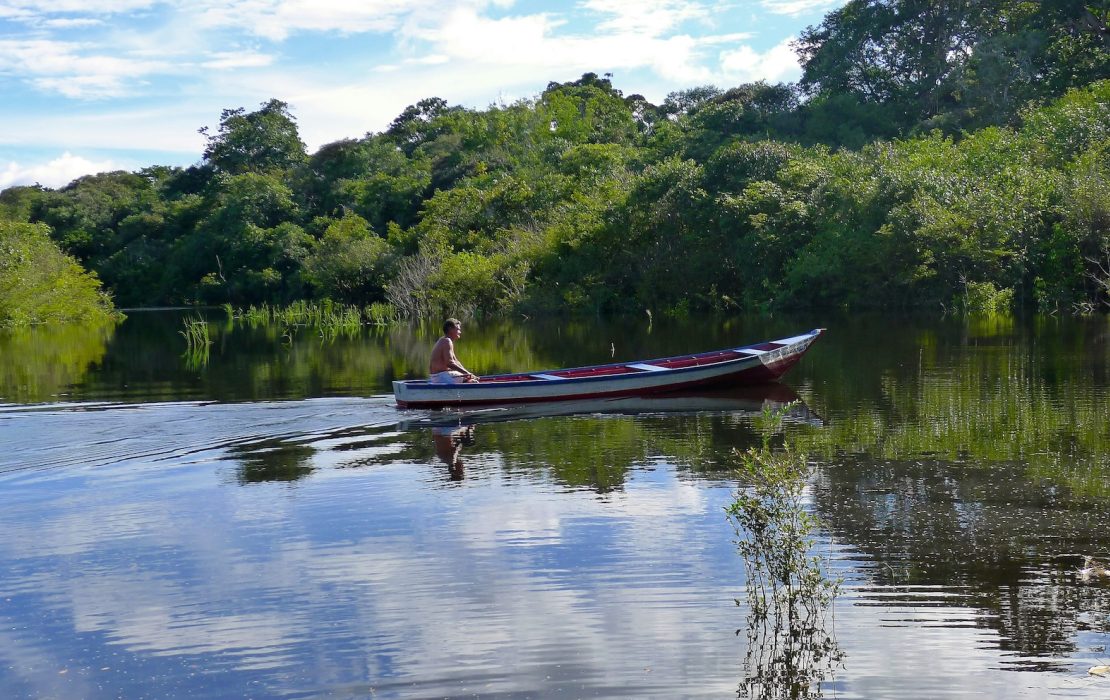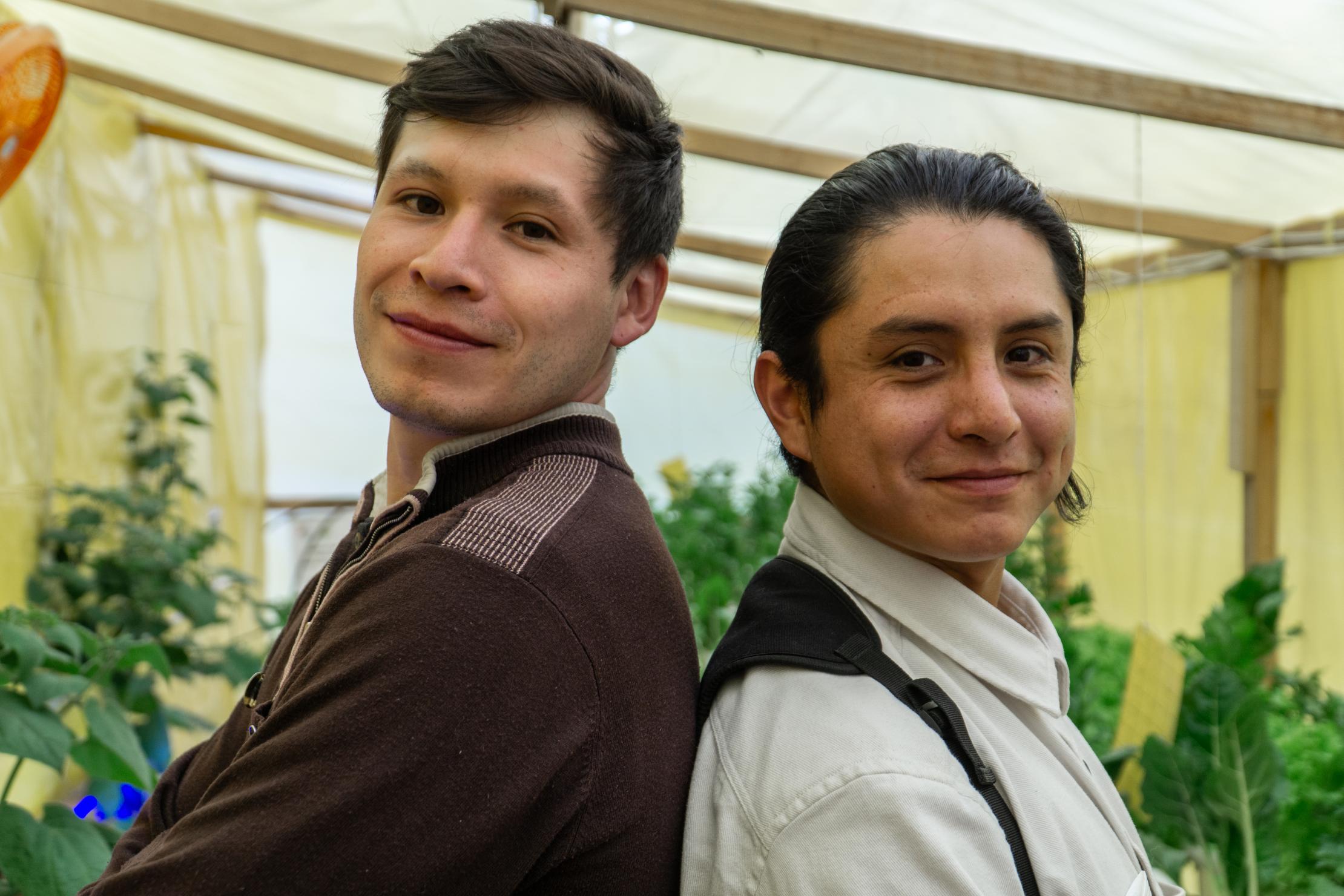
All photos by: Daniela Peris/UNDP
In Bolivia’s administrative capital, La Paz, food insecurity is becoming a pressing issue, exacerbated by climate change impacts like droughts and floods. La Paz has a predominantly urban environment, with only 7 percent of the food being locally produced. It relies on food deliveries from other parts of the country to feed its more than 800,000 residents.
To help tackle this crisis, Propacha, a youth-led initiative, and Cruz Verde, a sustainable enterprise, have joined forces to figure out how more food can be grown and produced locally.
Their solution? Introducing smart organic hydroponic gardens in public schools. This initiative not only leverages innovative agricultural technologies but also fosters environmental education among young people, empowering them to become agents of change in their communities. It was one of 50 climate solutions that received seed funding under the Youth4Climate Call for Solutions.
We spoke with Propacha’s Ana Lucia Encinas and Luis Guillermo Mallea Morales, and Cruz Verde’s Felix Angulo Zubieta, about the inception of their project, the innovative features of their smart gardens, and the impact they are having on their communities.
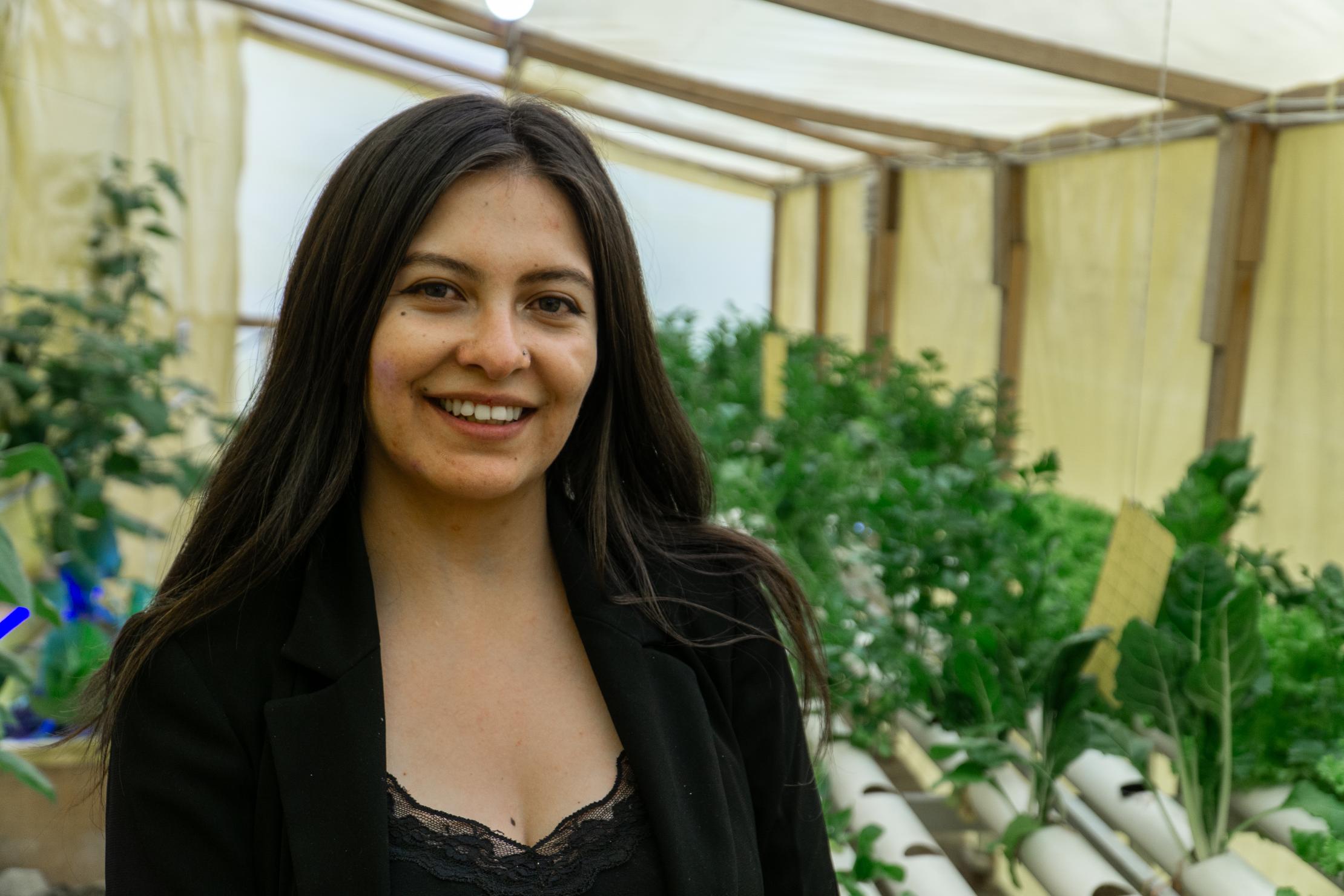
What specific challenges or needs were you looking to address through this initiative?
Ana Lucia: Bolivia is one of the countries with the highest rates of food insecurity in the world. This means that we do not produce the amount of food needed to meet the demand of the population. In highly urban cities, we do not produce our own food and we depend on the countryside, on the rural area, which is being affected by climate change. These impacts force people to migrate to cities, and we don't have enough food for them.
There is also the issue of food culture. Since it's cold here in La Paz, we mainly produce carbohydrates, such as potatoes and chuño, which don't contribute much to people's nutrition. For example, 30 percent of children are overweight and about 10 percent suffer from obesity. These were the reasons that influenced the creation of this initiative.
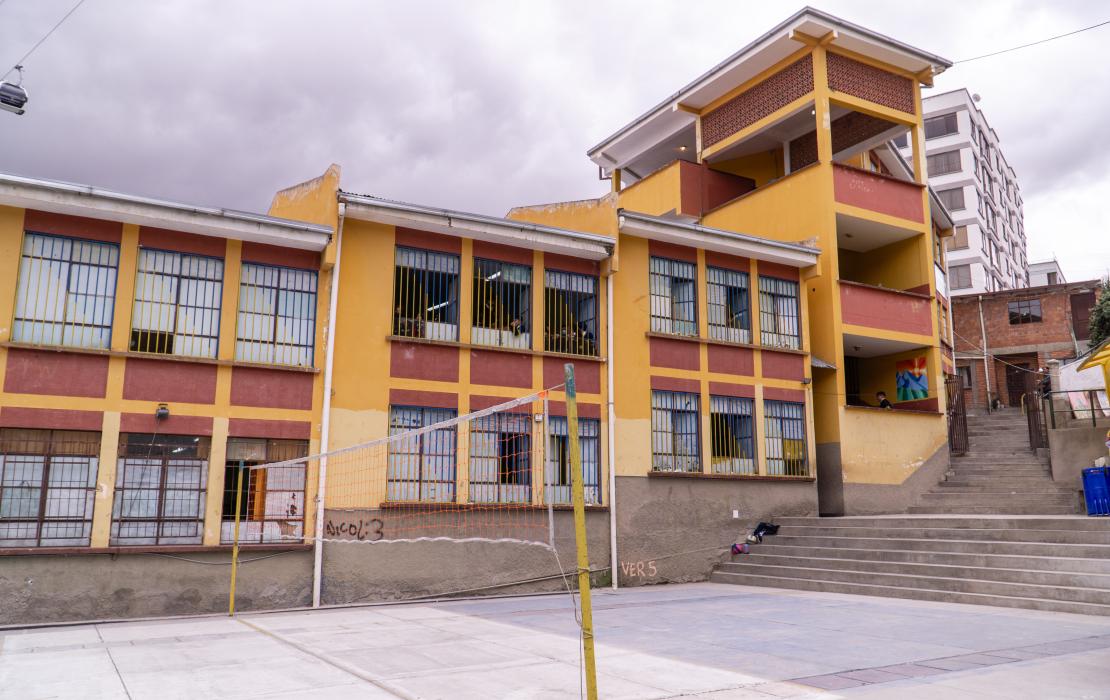
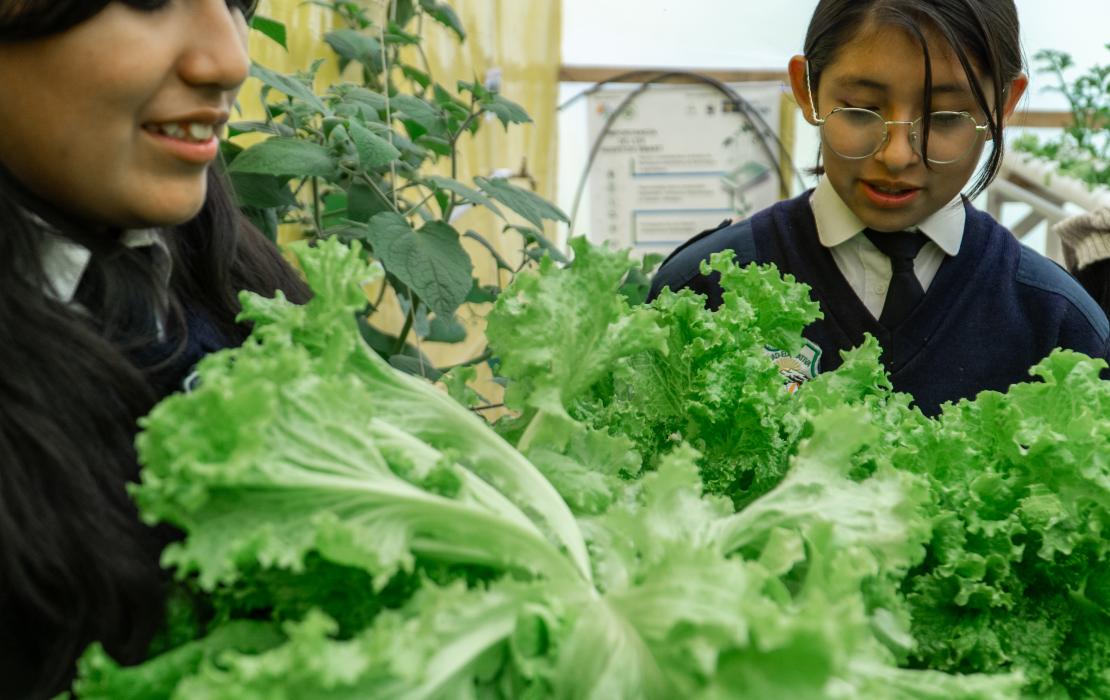
How did the initiative come about?
Ana Lucia: This initiative emerged from a partnership between Propacha and Cruz Verde, a sustainable enterprise dedicated to creating hydroponic spaces using new technologies. As for Propacha, it is a youth-led initiative dedicated to addressing environmental issues.
One day, we proposed the idea of building a garden at the school level that promotes the education of young people by showing them how to apply new agricultural technologies. We wanted to show the city, and the world, that in Bolivia, we can produce our food in a sustainable way without the need for large spaces of land, without burning forests, or using excessive water resources.
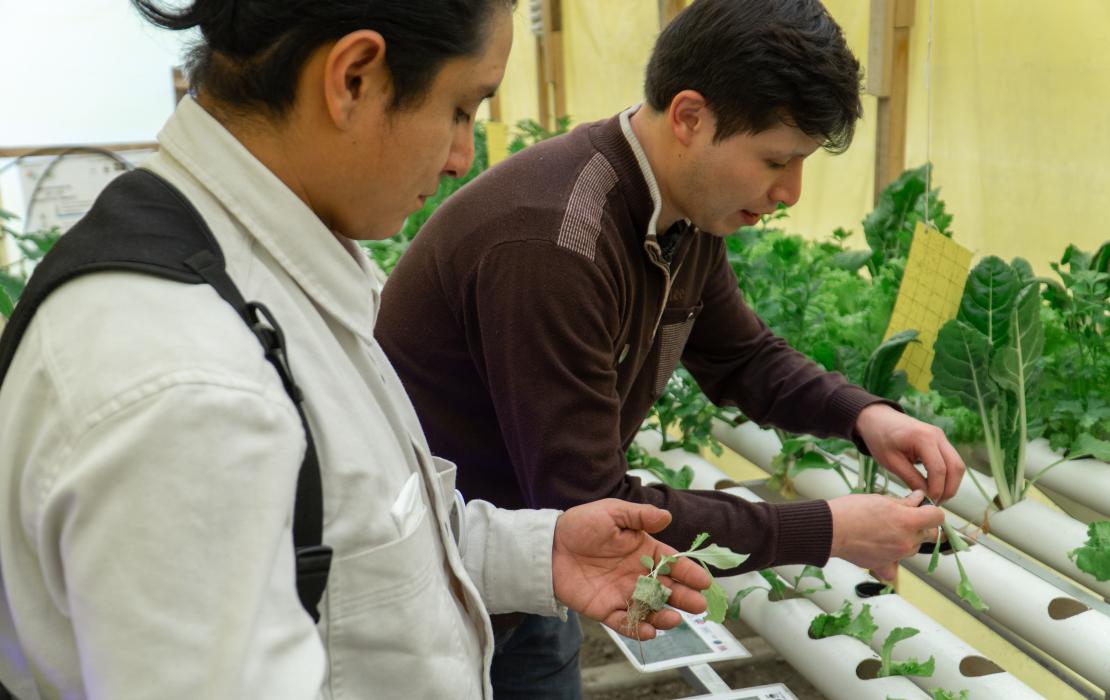
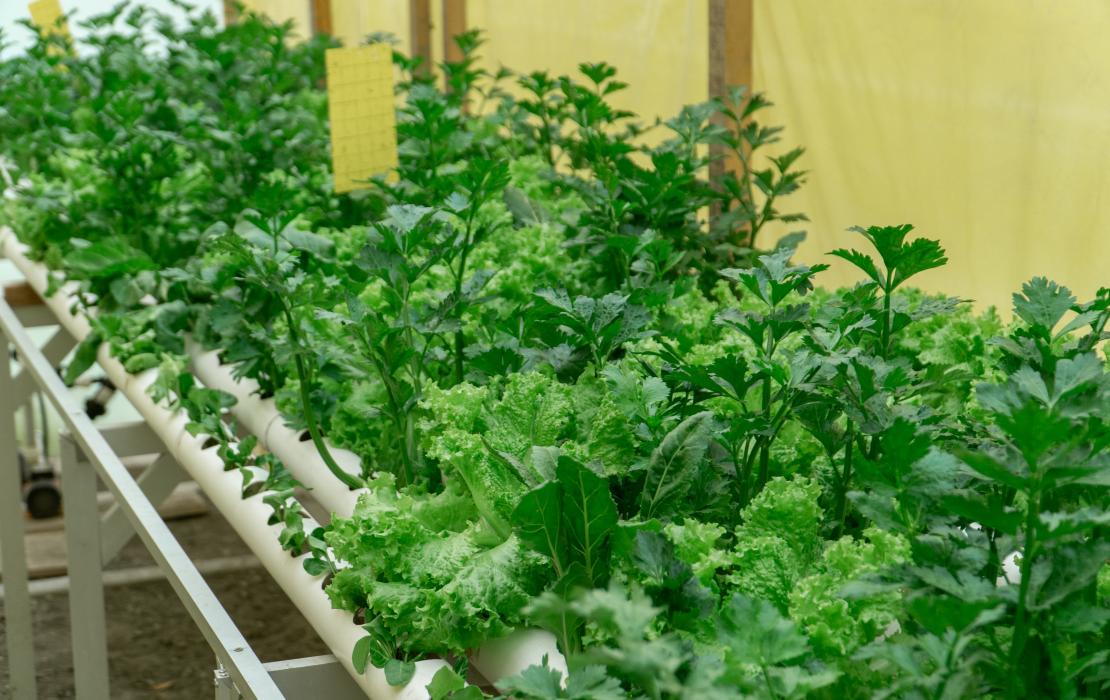
What are the innovative aspects of smart organic hydroponic gardens implemented in public schools in La Paz?
Felix: Cruz Verde is a new company created specifically to meet the need for urban gardens that incorporate technology. For this project, we worked with the students to deploy certain technologies that are innovative in our context, but that are already used in other countries to produce food. Together with Propacha, we combined this type of technology with a social project to create the first smart garden for young people in Bolivia. With the funds we initially obtained from the World Wildlife Fund, we managed to put into practice those technologies that we had been developing with our team for the first time in Bolivia and in the region. The funds from Youth4Climate will help us extend and scale up the project.
This type of technology allows us to germinate a large number of seeds at the same time, giving them extra lighting for the winter season if there is not much sunshine. It also maintains extra ventilation and performs automated nutrient-rich irrigation which enables us to produce a large number of seedlings. These seedlings then go to the other areas of the garden for production, which are the grow boxes, and the hydroponic system, which is the area where vegetables are cultivated without soil. With these models, what we try to do is teach young people that there are new technological methods for producing food in the cities of the future.
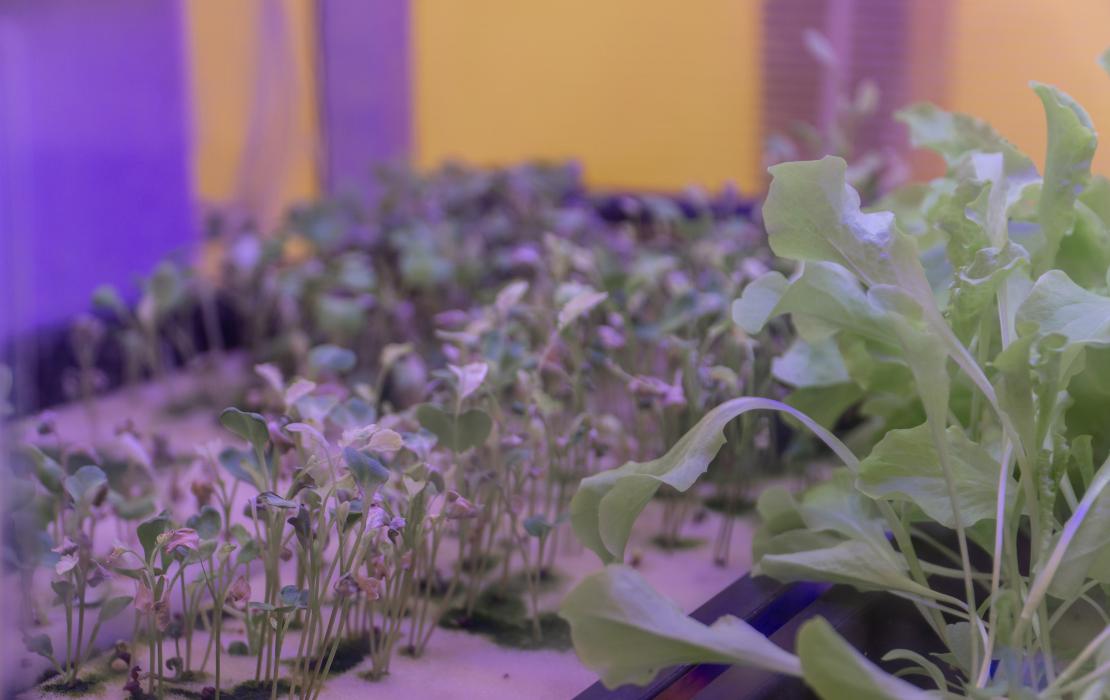
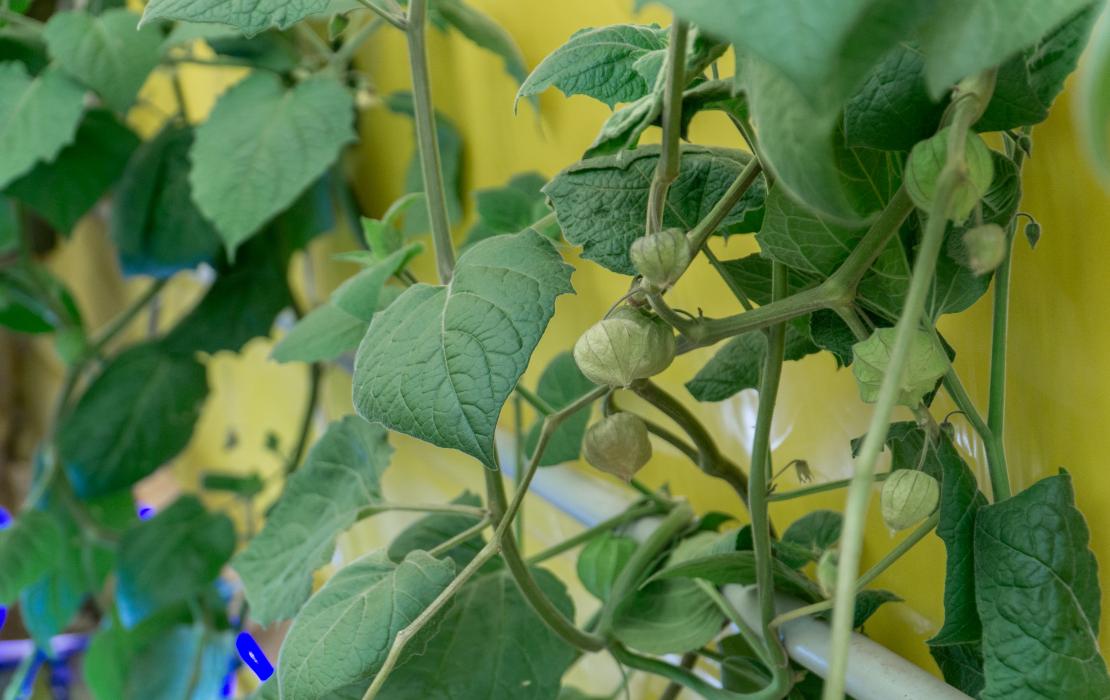
How have schools and the local community received the Propacha project?
Guillermo: At first, it was quite interesting because when we said “smart garden,” the community didn't understand the concept. But when we told them that we were fully committed, had the budget and everything we needed, they said they trusted us. In the same way, the mayor's office told us they will support us. For example, the floor in the garden is made of recycled tiles from the city’s avenues. When the city changed them out, instead of throwing them away, they were brought here and we installed them. Parents have worked with us in different ways, with their own hands, on the project, because they hoped to see how their children could bring food home, because that was our promise. And once we showed them that it was possible, they took it very well. It has been something that has united the educational units and that has given young people something more to share about their school, like their school is something special.
What did it mean for you to have won the Youth4Climate award and seed funding?
Ana Lucia: What motivated us to apply to the Youth4Climate Call for Solutions was the need for funding to develop this project, and UNDP’s strong track record in environmental education, food security, and youth engagement. We had seen several of the initiatives and we thought we didn’t have anything to lose by applying.
For us, as young Bolivians, this support means a lot because here, in Bolivia, this funding is very valuable and will allow us to create not just one, but two more gardens and to scale up this project. And not only that, but also to strengthen the socialization workshops, the training of young people in managing the gardens, and the development of manuals. So the funding and support will help us further advance this project and ensure that not only one community benefits from it, but also other communities in La Paz, in such a way that they can exchange experiences and knowledge. We also want the teachers and directors, the community itself, to feel the benefits of this project, because this project benefits the entire community. We didn’t just come here and build the garden; it was the community that participated in the construction.
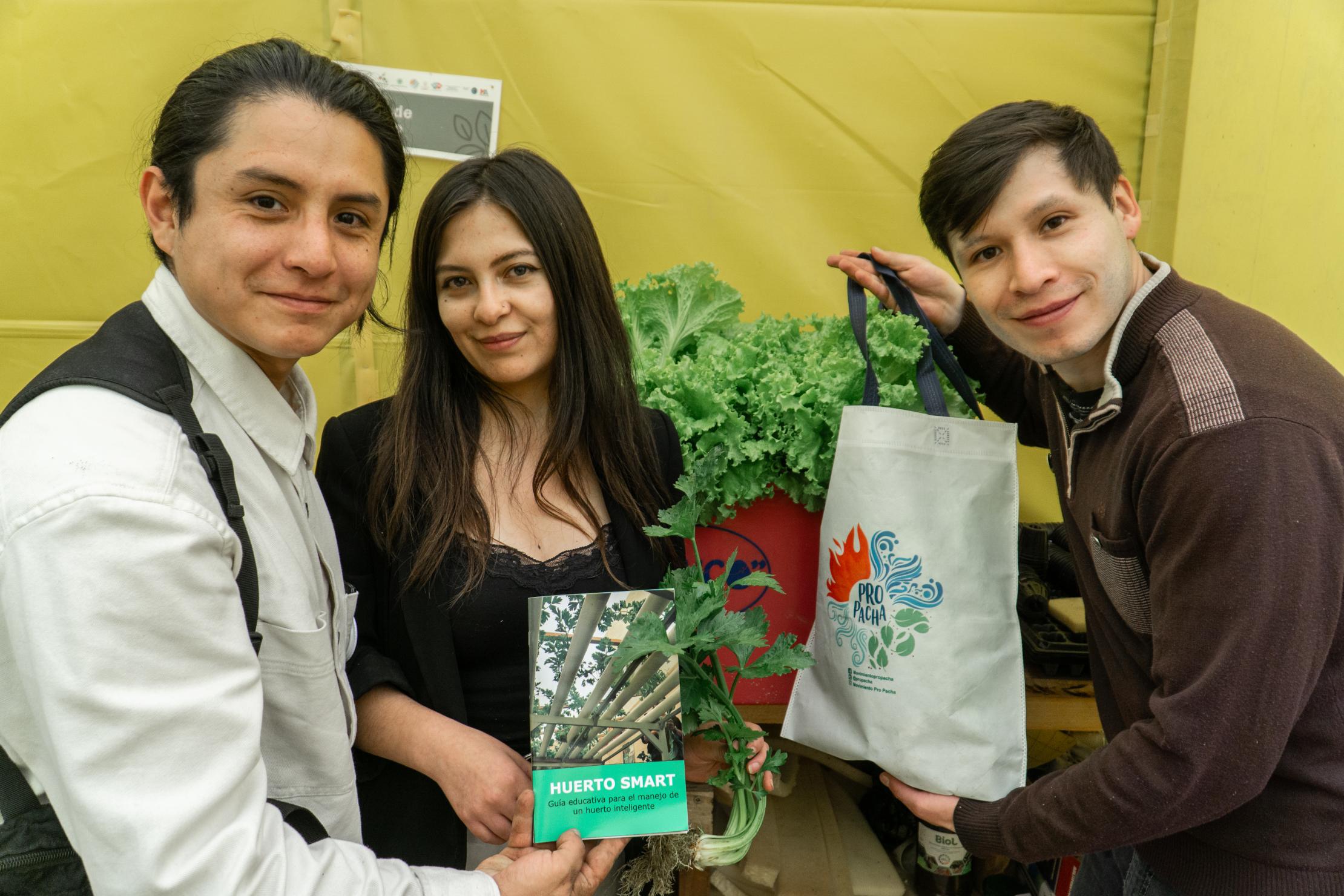
What role do youth-led initiatives like Propacha play in driving meaningful climate action and inspiring broader societal change?
Guillermo: I must be very honest, we young people dream a lot, but we materialize little because the opportunities available are very limited. The fact that we are here is because many factors have come together to make it happen, and we appreciate that very much. But it is also a wake-up call, and a call to action for young people to not give up, even when the path ahead is hard. It is also a call for the institutions to provide these opportunities so that young people’s ideas can be implemented and scaled up.
***
Youth4Climate (Y4C) is a global initiative, launched in May 2022, co-led by the Government of Italy and the United Nations Development Programme (UNDP). The initiative has its Secretariat at the UNDP Rome Centre for Climate Action and Energy Transition, and is supported through the 8x1000 funds of the Italian Buddhist Institute Soka Gakkai.
Y4C brings together existing and new online and offline resources, tools, capacities, partnerships, networks and movements led by and designed for youth, with a strong focus on the implementation of solutions, for a more sustained impact on climate on the ground. It aims to foster an inclusive, safe and enabling environment for youth to lead and partner with other stakeholders on climate action.
For further updates about the event and information on partner initiatives, check out the Youth4Climate platform.


